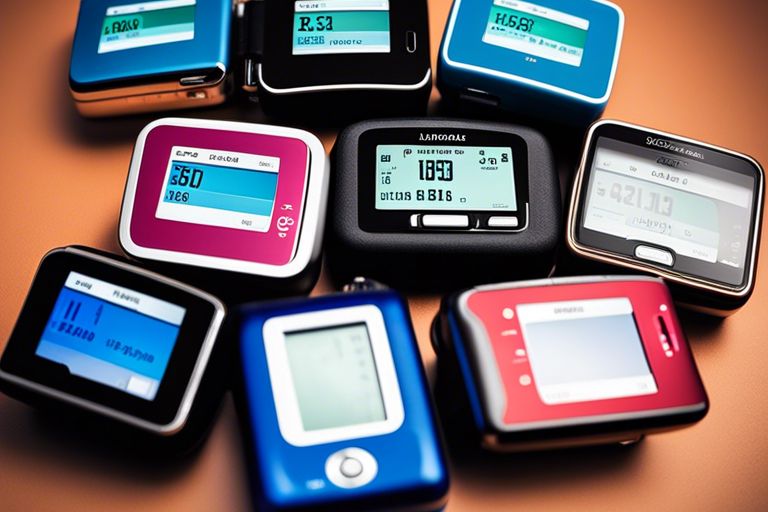Diabetes type 1 is a lifelong autoimmune disease that affects the body’s ability to produce insulin. Pregnancy can further complicate the management of diabetes type 1. It is essential for pregnant women with type 1 diabetes to manage their condition carefully to avoid potential risks to themselves and their babies. This article will cover the essential things that women with diabetes type 1 need to know about managing their condition during pregnancy.
Introduction
Diabetes type 1 is a chronic autoimmune condition when the body’s immune system attacks the cells that produce insulin in the pancreas. Insulin is a hormone that regulates the amount of glucose in the blood. Without enough insulin, glucose builds up in the bloodstream, leading to high blood sugar levels.
Pregnancy can complicate the management of diabetes type 1. High blood sugar levels during pregnancy can increase the risk of complications for both the mother and the baby. It is crucial for women with type 1 diabetes to manage their condition carefully during pregnancy to avoid potential risks.
Preconception Planning
Preconception planning is essential for women with diabetes type 1 who are planning to conceive. Optimal glucose control before conception can help reduce the risk of complications during pregnancy. A healthy diet and exercise can also help improve glucose control and overall health.
Healthcare providers play a crucial role in preconception planning for women with diabetes type 1. They can provide guidance on optimal glucose control, diet, and exercise.
Pregnancy Management
During pregnancy, it is essential for women with diabetes type 1 to monitor their blood glucose levels regularly. Maintaining blood glucose levels within a target range can help reduce the risk of complications for both the mother and the baby. Insulin therapy is usually the primary treatment for diabetes type 1 during pregnancy.
A healthy diet and exercise are also important for women with diabetes type 1 during pregnancy. A balanced diet with the right mix of carbohydrates, proteins, and fats can help keep blood glucose levels stable. Exercise can also help improve glucose control and overall health.
Potential risks and complications during pregnancy include pre-eclampsia, premature birth, and gestational hypertension. Healthcare providers play a crucial role in managing diabetes type 1 during pregnancy. They can provide guidance on insulin therapy, blood glucose monitoring, and diet and exercise.
Labour and Delivery
During labour and delivery, blood glucose levels can fluctuate rapidly. Healthcare providers will closely monitor blood glucose levels and adjust insulin therapy to maintain target levels. Potential risks and complications during labour and delivery include fetal distress, neonatal hypoglycemia, and cesarean delivery.
Healthcare providers play a critical role in managing diabetes type 1 during labour and delivery. They will closely monitor blood glucose levels and adjust insulin therapy to maintain target levels.
Postpartum Care
After delivery, blood glucose levels can fluctuate rapidly, especially if women with diabetes type 1 were taking insulin during pregnancy. Healthcare providers will closely monitor blood glucose levels and adjust insulin therapy to maintain target levels.
A healthy diet and exercise are also important for women with diabetes type 1 postpartum. Breastfeeding can also help improve glucose control and overall health for both the mother and the baby.
Breastfeeding
Breastfeeding can provide numerous benefits for women with diabetes type 1 and their babies. Breast milk provides essential nutrients that can help promote healthy growth and development. Breastfeeding can also help improve glucose control in women with diabetes type 1.
However, breastfeeding can also affect blood glucose levels in women with diabetes type 1. Healthcare providers will closely monitor blood glucose levels and adjust insulin therapy to maintain target levels.
Managing Diabetes Type 1 During Pregnancy: Tips and Strategies
Managing diabetes type 1 during pregnancy can be challenging, but there are several tips and strategies that women can use to help manage their condition effectively. These include monitoring blood glucose levels regularly, following a healthy diet and exercise regimen, and working closely with healthcare providers to manage insulin therapy.
Women with diabetes type 1 may also experience emotional challenges during pregnancy, such as anxiety and stress. It is essential to seek support from healthcare providers and loved ones to help manage these challenges effectively.
Conclusion
Managing diabetes type 1 during pregnancy is crucial for both the mother and the baby. It is essential to work closely with healthcare providers to monitor blood glucose levels, manage insulin therapy, and maintain a healthy diet and exercise regimen. With proper care and management, women with diabetes type 1 can have healthy pregnancies and deliveries.
FAQs
-
Can women with diabetes type 1 have a healthy pregnancy and delivery?
- Yes, with proper care and management, women with diabetes type 1 can have healthy pregnancies and deliveries.
-
What are the risks of uncontrolled diabetes type 1 during pregnancy?
- Uncontrolled diabetes type 1 during pregnancy can increase the risk of complications for both the mother and the baby, including pre-eclampsia, premature birth, and gestational hypertension.
-
Can breastfeeding affect blood glucose levels in women with diabetes type 1?
- Yes, breastfeeding can affect blood glucose levels in women with diabetes type 1. Healthcare providers will closely monitor blood glucose levels and adjust insulin therapy to maintain target.
-
What are some tips for managing diabetes type 1 during pregnancy?
- Some tips for managing diabetes type 1 during pregnancy include monitoring blood glucose levels regularly, following a healthy diet and exercise regimen, and working closely with healthcare providers to manage insulin therapy.
-
How can healthcare providers support women with diabetes type 1 during pregnancy?
- Healthcare providers can provide guidance on optimal glucose control, diet, and exercise during preconception planning, monitor blood glucose levels closely during pregnancy, adjust insulin therapy as needed, and provide emotional support and guidance for managing the condition effectively.




